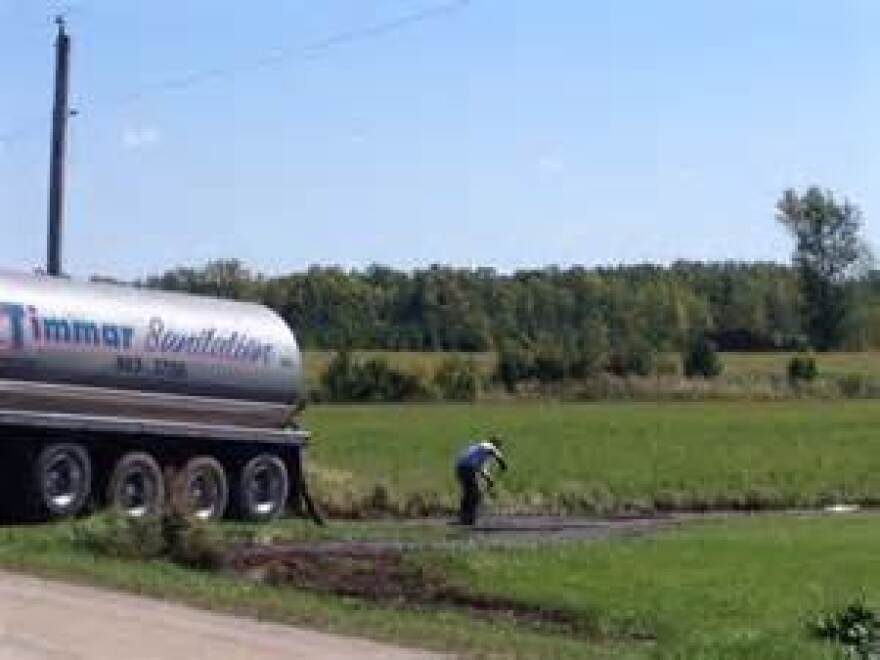Sixteen large dairy operations pepper Kewaunee’s county landscape – so do the fields on which they spread their manure. Today, more than 30% of Kewaunee County residents’ wells are contaminated.
The geology of the county allows manure to seep into the groundwater, and the situation finally resulted in action.
Resident Lynn Utesch served on workgroups, along with representatives from agencies, such as the EPA and state DNR.
Utesch says their mission was to move fast, and come up with permanent fixes – to better manage all the manure that farms, especially large ones, spread on fields.
Utesch doesn’t see his work reflected in the plan the Natural Resources Board advanced Wednesday.
“It should be an emergency rulemaking package. Human health emergency. We are going to have to wait three to five years. It wasn’t even proposed to the governor as an emergency. We have waited for years. Your own secretary said that this is one of the first things she engaged in. Well I hate to say it, the citizens of Kewaunee County didn’t see her then, and didn’t hear from her,” Utesch said.
Originally, the DNR drafted a far more comprehensive plan that would have updated manure regulations and airborne spraying statewide.
The scope of the plan officials approved Wednesday was reduced. It would impact only Kewaunee County and other regions with the same geology.
The agency says it scaled back the plan to make it easier to push forward.
There were also reports that Governor Walker and stakeholders such as the Wisconsin Dairy Business Association blocked broader rules.
No matter the cause, Wisconsin Rapids resident Helen Donahue says she doesn’t like the effect.
She lives in a sandy region of the state, where an existing business wants to add a large dairy operation.
“Which is a sensitive resource area whose sandy soils are high susceptible to groundwater contamination. The Wysocki’s plan is to clear cut of our currently forested lands to grow their crops in sandy soil which will require constant irrigation. They plan to drill 33 high capacity wells estimated to pump 7.3 billion gallons of water annually from our aquifer. Along with the constant need to irrigate the sandy soil to grow crops, comes the need to fertilize with chemical toxins and manure irrigation. Both of which will leech rapidly into the sandy soils to our groundwater and put the drinking water of 5,400 people at high risk of contamination,” Donahue said.
Other citizens attending Wednesday’s meeting echoed similar concerns, about a proposed swine CAFO off Lake Superior and a massive dairy in St. Croix County.
Before the Natural Resources Board voted – an action which was both swift and nearly soundless – Russ Rasmussen was among the people who spoke.
He is policy and external relations director with the Wisconsin DNR.
“There’s been an awful lot of misunderstanding and misinformation especially recently. One that I saw is that this is going to be limited to Kewaunee County. Absolutely false,” Rasmussen said.
According to Rasmussen, all sensitive areas of the state prone to fractures that allow manure and pollutants to seep into the groundwater – will fall under the rule’s protection.
Board member Bill Bruins told the room that he takes the issue personally. His family runs a multigenerational dairy farm in Fond du Lac County.
“We’re not going to flesh out the scope statement based on the court of public opinion. We’re going to go where the facts and the sound science takes us. And I think the board is going to pledge to you today that we’re going to fix this problem. We’re all in this together,” Bruins said.
But fixing what’s broken requires more than beefier rules.
Staff will need to get out into the fields and make sure farmers are following protocol. Currently, the DNR staff is pretty lean.





